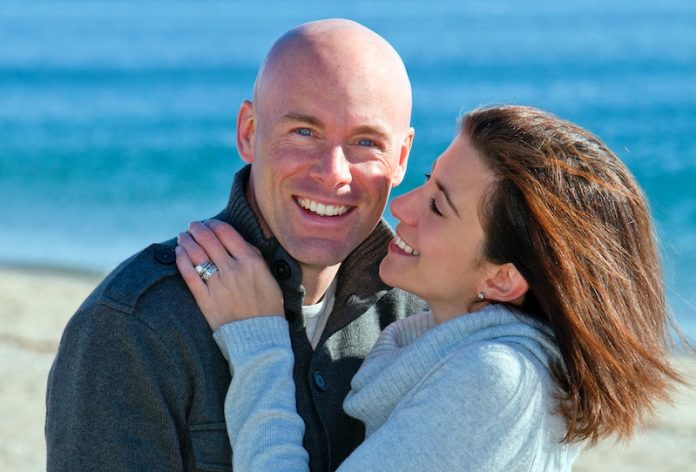
Sun’s out, hats on! Especially for our friends embracing the bald look, a new study shines a light on why keeping our scalps shielded from those sunny rays is extra crucial.
Scientists have been busy figuring out the relationship between having less hair and getting skin cancer, and we’re here to untangle the findings in a simple chat.
The Sun and Our Skin: A Troublesome Relationship
Let’s begin with a bit of backstory on the sunny days we all love. Sunshine isn’t just bright light; it carries ultraviolet (UV) rays that can be pretty harsh on our skin.
You might’ve noticed how staying out in the sun too long without protection (like sunscreen or hats) can cause sunburns.
Over time, too much of this sunlight exposure can lead to skin cancer, a condition where cells in our skin start misbehaving and growing in harmful ways.
Australia is known for its stunning beaches and sunny weather, but it also holds the record for the highest rates of skin cancer globally.
In fact, a person gets diagnosed with melanoma, a type of skin cancer, every 30 minutes in Australia! That’s why scientists there are especially keen on finding out all they can about what might increase our risk of getting this disease.
Exploring Baldness and Skin Cancer Links
Now, enter the scientists from QIMR Berghofer, a medical research institute.
They’ve noticed that bald individuals tend to get skin cancer more often than their hairier counterparts. This sparked curiosity: why would having less hair link to getting skin cancer more frequently?
Some folks thought it might have to do with testosterone, a hormone that’s higher in men and is also linked to male pattern baldness.
Others believed it might be much simpler: that bald heads, without a protective layer of hair, get more sun exposure and thus are more at risk. So, the scientists embarked on a journey to find out which theory held water.
They dove into a vast pool of data, looking at the genetic information from 29,000 cases of skin cancer.
By comparing this data with genetic information about baldness and testosterone levels, they tried to spot any patterns or links that stood out.
What they found might not surprise you: it was indeed the simple explanation that proved to be true! Balding individuals are more prone to skin cancer primarily because their scalps are more exposed to the sun.
Testosterone, on the other hand, didn’t seem to have much to do with it.
Keeping Our Scalps Safe: The Takeaway
However, the scientists did spot something interesting in the genes. There was a connection between genes that cause hair loss and genes that determine our skin color.
Skin color, or how dark or light our skin is, can affect how likely we are to get sunburned and potentially, develop skin cancer.
This insight suggests that skin color might also play a role in why bald individuals have a higher skin cancer risk. However, the main reason remains the extra exposure to the sun that a hairless scalp gets.
The good news is, this is a risk we can do something about! Regardless of our hair situation, practicing sun safety is crucial.
So, for our bald friends and everyone who loves them, keeping the head protected with hats, scarves, or using a good dollop of sunscreen becomes paramount.
It’s a simple step, but one that can shield us from unnecessary risks and let us enjoy those sunny days safely.
This study, while seemingly straightforward, reminds us of the importance of staying curious and asking questions, even when we think we know the answers.
It also nudges us to remember: enjoying the sun is great, but let’s keep it safe and protect every bit of our skin – scalps included!
In summary, while enjoying the outdoors and basking under the sun is one of life’s simple pleasures, it is vital to ensure that our skin, especially areas that are more exposed like the scalp for individuals experiencing baldness, is adequately protected.
Through mindful practices, we can navigate through sunny days in a way that is enjoyable yet safe, striking a balance that cares for our wellbeing in the long run.
So here’s to sunny days ahead, with hats on heads and sunscreen in hand!
If you care about skin health, please read studies about top signs of diabetic skin disease, and Mediterranean diet could help lower the skin cancer risk.
For more information about skin health, please see recent studies about eating fish linked to higher risk of skin cancer, and results showing how to combat the effects of aging on your skin.
The research findings can be found in Nature Communications.
Follow us on Twitter for more articles about this topic.
Copyright © 2023 Knowridge Science Report. All rights reserved.



